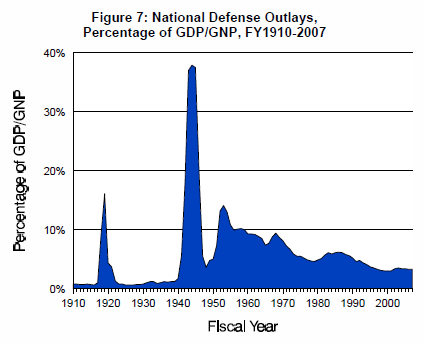Originally Posted by
rickair7777

But fundamentally all that economic gain is a command performance, paid for by taxes. I think the local pain of a few mom-and-pops going out of business pales in comparison to the potential greater gain.
All of that economic capacity, converted to civilian use, will contribute to an improved economy, higher per capita GDP, and better QOL. Bases, runways, warships, tanks, fighters, and guns are things you have to have when you need them, and they have a cost. But if you don't need them, they don't contribute to QOL...those resources applied to civil housing, infrastructure, education, healthcare, etc have a potential for significant QOL improvement.
There are some management issues...
-First and foremost, you can't get rid of military capability unless you truly no longer need it. This requires a national discourse because "need" is a subjective sliding scale: global cop, defense of select allies, homeland defense...where do we want/need to be? If you guess wrong, the result could be regional or even global instability with enormous economic consequences (and not the good kind). While I'm pointing out the benefits of transitioning defense economic capacity to civil focus, I'm not advocating that we do so lightly or carelessly.
-The transition, if not paced and controlled, will cause temporary pain. Us older guys saw that in the early 90's...but we also saw the subsequent economic boom a few years later.
-Defense spending emphasizes high-tech, R&D, and education. If you allow those to fall by the wayside during a transition to a civil economy, you will pay a big price...maybe bigger than the peace dividend you seek in the first place. But that can managed.
I'd be careful about the cause/effect relationship with this. Military spending as a portion of GDP has actually declined since Vietnam, even with the Reagan build-up and the GWOT:
 File:US defense spending by GDP percentage 1910 to 2007.png - Wikimedia Commons
File:US defense spending by GDP percentage 1910 to 2007.png - Wikimedia Commons
The break-up of the Eastern Bloc/Iron Curtain and the new markets that blossomed there and in the USSR former client states, along with the ramp-up of trade with China, along with the "gridlock" of a GOP Congress/Senate and a Dem President all contributed to the 90's boom. To name any single stream as having the primary influence is difficult to substantiate.